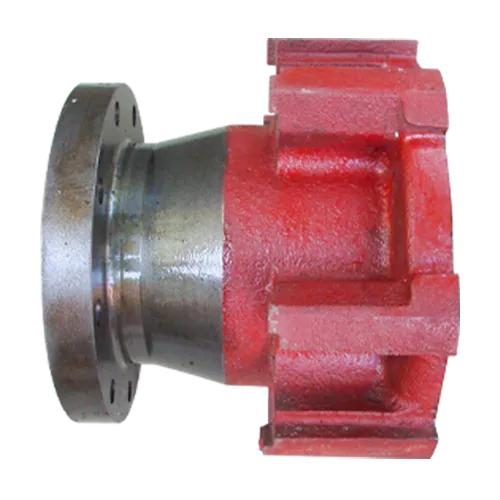Mobile:+86-311-808-126-83
Email:info@ydcastings.com
Exploring the Importance of End Plugs in Various Industrial Applications and Their Impact on Efficiency
Exploring the Importance of End Plugs in Modern Engineering
In the world of engineering and manufacturing, the role of seemingly small components often goes unnoticed. One such integral element is the end plug. While it may appear to be a simple device, the significance of end plugs extends across various industries, providing functionality, safety, and efficiency.
An end plug is a device designed to seal or close the open end of a pipe, tube, or any cylindrical structure. Its applications are widespread, serving crucial roles in plumbing, automotive, aerospace, and even consumer products. The primary function of an end plug is to prevent the ingress of contaminants and the escape of fluids or gases. This is vital for maintaining the integrity of systems that rely on precise fluid dynamics, as leakage can lead to operational inefficiencies, increased costs, and potential hazards.
In the plumbing industry, for instance, end plugs help seal pipes to ensure that water systems operate effectively and without leaks. This is especially important in residential and commercial building applications, where even minor leaks can result in significant water damage and costly repairs. End plugs also play a critical role in gas pipelines, where sealing is crucial to prevent explosive hazards. They ensure that the transported gases remain contained within the system, contributing to overall safety.
In automotive engineering, end plugs are essential components in fuel systems
. They seal fuel lines and tanks, preventing leaks that could lead to fires or environmental contamination. Similarly, in the aerospace sector, the plugs help secure fuel and hydraulic systems, ensuring safety at high altitudes and under varying atmospheric pressures. The failure of an end plug in any of these applications can have disastrous consequences, making their reliable design and manufacturing crucial.end plug

Moreover, end plugs are increasingly becoming important in sustainable engineering practices. As industries seek to reduce waste and improve efficiency, the design of end plugs has evolved. Manufacturers are now focused on creating end plugs that are not only functional but also environmentally friendly. This includes using recyclable materials and designing plugs that minimize material usage without compromising strength or performance.
The applications of end plugs extend beyond traditional industries as well. In the realm of consumer products, plastic end plugs are commonly used in packaging to preserve the freshness of foods and beverages. For instance, they can be found in the closures of bottles or containers, ensuring that the contents remain protected until they are ready to be consumed.
In addition to their protective functions, end plugs can also have aesthetic benefits. With designs that can complement product appearance, they contribute to the overall presentation of items in retail environments. This is particularly relevant in the cosmetics and personal care industries, where product packaging plays a significant role in consumer attraction and engagement.
In conclusion, while end plugs may be small components, their importance in various applications cannot be overstated. They ensure safety, efficiency, and sustainability across multiple sectors, from plumbing and automotive engineering to consumer products. As technology advances and industries shift toward more sustainable practices, the role of end plugs will undoubtedly continue to evolve. Recognizing their significance is essential for engineers and manufacturers as they strive to create more efficient systems that prioritize safety and environmental responsibility. The humble end plug, often overlooked, is a testament to how even the smallest parts can have a substantial impact on the larger systems they support.
-
What Makes Stainless Steel Pump Casting Essential for Modern Industries?NewsJul.14,2025
-
Revolutionize Your Engine Maintenance with Premium Aluminum and Cast Iron ComponentsNewsJul.14,2025
-
Precision Flow Engineering Starts with the Right Pump ComponentsNewsJul.14,2025
-
Maximize Efficiency: Explore Reliable Containment and Crop SolutionsNewsJul.14,2025
-
Discover Superior Performance with Advanced Turbo ComponentsNewsJul.14,2025
-
Boost Fluid Dynamics with Precision-Engineered Pump ComponentsNewsJul.14,2025











